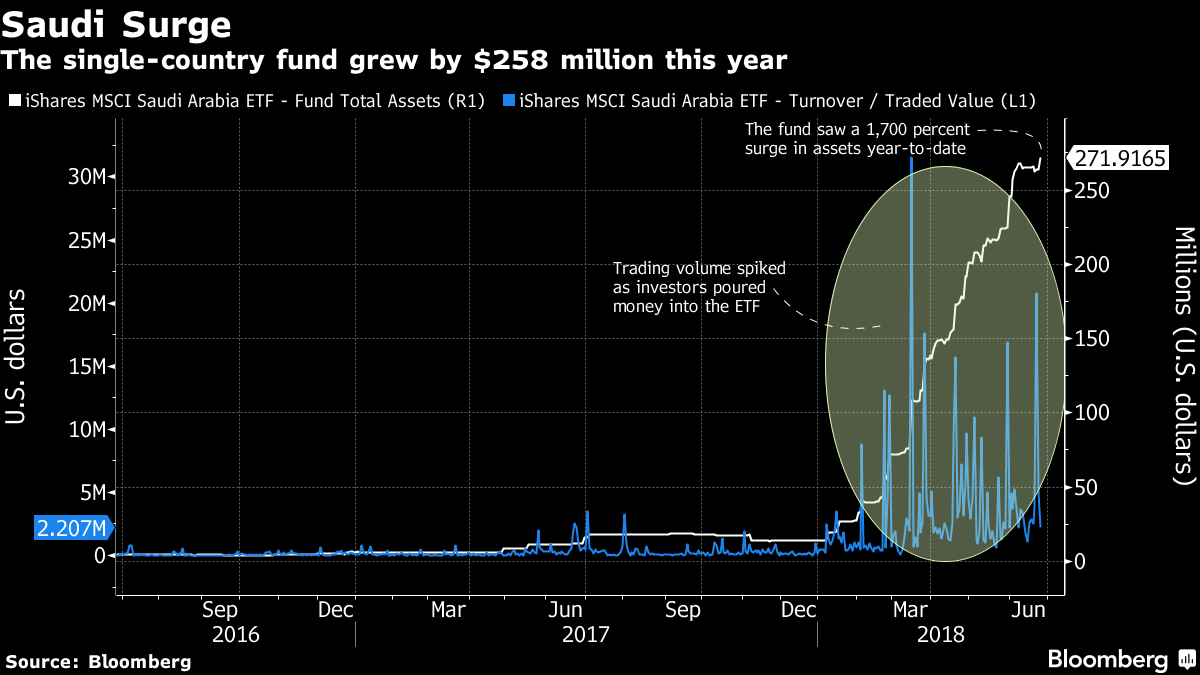Saudi Arabia’s addition to indexer MSCI Inc.’s group of emerging markets starting in June 2019 is expected to lure $40 billion in foreign investment to country. Now, U.S. investment firms are looking to get in on the action.
Franklin Templeton Investments, a long-time active asset manager, is seeking approval for a Saudi Arabia ETF, according to a filing with the U.S. Securities and Exchange Commission on Friday.
Currently, there’s only one such fund, the iShares MSCI Saudi Arabia ETF, or KSA. It has $269 million in assets, a figure that’s ballooned by as much as 1,700 percent this year, the most among all single-country funds.
This comes at a time when investors are pulling billions from broad emerging market funds and investing in single-country ETFs.
“For Saudi Arabia and the region, this is a great opportunity to move into the limelight of international foreign investors, and to attract inflows,” said Michael Bolliger, the head of emerging-market asset allocation at UBS Wealth Management’s chief investment office.
The 20 countries promoted to MSCI emerging market status since 1994 had median returns of 55 percent in the year prior to official inclusion, according to Bassel Khatoun, managing director for frontier and MENA, and Salah Shamma, head of investment for MENA, at Franklin Templeton Emerging Markets Equity.
It’s unclear how Franklin’s fund will differentiate itself from KSA or what it will charge investors. But when the firm made its passive ETF debut in November by launching 16 single-country funds, it clearly tried to undercut rival BlackRock Inc. Franklin charges less than $1 for every $1,000 invested in its developed single-country ETFs and $1.90 for emerging market funds, while BlackRock charges at least $4.80 for developed markets ETFs and $6.20 for emerging market funds.
Last week, foreign investors jumped at the opportunity to invest in Saudi Arabia when Invesco Ltd. issued the first European ETF to track the country’s shares in expectation of MSCI upgrading the country’s status.
This article was provided by Bloomberg News.
Franklin Templeton Files For New Saudi Arabia ETF
June 26, 2018
« Previous Article
| Next Article »
Login in order to post a comment








